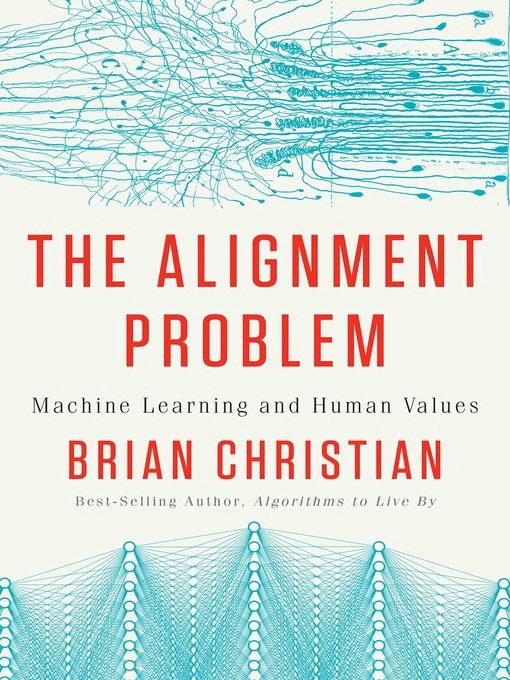
The Alignment Problem
Machine Learning and Human Values
کتاب های مرتبط
- اطلاعات
- نقد و بررسی
- دیدگاه کاربران
نقد و بررسی

July 27, 2020
Christian (The Most Human Human), a writer and lecturer on technology-related issues, delivers a riveting and deeply complex look at artificial intelligence and the significant challenge in creating computer models that “capture our norms and values.” Machines that use mathematical and computational systems to learn are everywhere in modern life, Christian writes, and are “steadily replacing both human judgment and explicitly programmed software” in decision-making. Some of those decisions, however, are unreliable, as Christian shows through scrupulous research. Facial recognition systems can be “wildly inaccurate for people of one race or gender but not another” and perform particularly poorly on identifying Black women correctly. Meanwhile, risk assessment software, which helps decide bail, parole, and even sentencing for criminal defendants, has been widely adopted nationwide without being extensively audited. Though it’s tempting to assume a doom-and-gloom outlook while reading of these problems, Christian refreshingly insists that “our ultimate conclusions need not be grim,” as a new subset of computer scientists “focused explicitly on the ethics and safety of machine-learning” is working to bridge the gap between human values and AI learning styles. Lay readers will find Christian’s revealing study to be a helpful guide to an urgent problem in tech.

August 15, 2020
The latest examination of the problems and pitfalls of artificial intelligence. Computer scientist Christian begins this technically rich but accessible discussion of AI with a very real problem: When programming an algorithm to teach a machine analogies and substitutions, researchers discovered that the phrase "man - doctor + woman" came back with the answer "nurse" while "shopkeeper - man + woman" came back with "housewife." An algorithm designed to examine and label photographs returned the caption "gorillas" when it depicted two African Americans. It happened that one of those men was a programmer himself, and he said, "It's not even the algorithm at fault. It did exactly what it was designed to do." In other words, the algorithm is returning human biases, just as algorithms do when examining criminal records that often lead to machine-assisted recommendations for sentencing that overwhelmingly give Whites lighter punishments than Blacks and Latinos and color calibration programs for TVs and movie screens that are indexed to white skin. So how to teach machines to be reliable and bias-free? Christian considers models of human learning, such as those developed by Jean Piaget, whom Christian finds off on a couple of key assumptions but still a useful guide. He recalls that Alan Turing wondered why machine-learning programs were geared as if the machines were adults instead of children. Children, of course, learn by mistakes and accidents and by emulating adult doings "that would lead to the interesting result," but can a machine? On that score, Christian ponders how self-driving vehicles are taught how to be autonomous, making decisions that are logical--but logical to a machine mind, not a human one. "Perhaps, rather than painstakingly trying to hand-code the things we care about," writes the author, "we should develop machines that simply observe human behavior and infer our values and desires from that--a task easier said than done. An intriguing exploration of AI, which is advancing faster than--well, than we are.
COPYRIGHT(2020) Kirkus Reviews, ALL RIGHTS RESERVED.

























دیدگاه کاربران